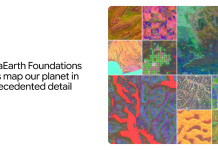Navigating the AI vs Human Intelligence Debate: Exploring the Future of Technology and Work
Artificial intelligence has come a long way from being just a concept in science fiction to becoming an integral part of our daily lives. As AI continues to advance and become more pervasive in various industries, a new debate has emerged – the battle between AI and human intelligence.
The goal of artificial intelligence is to create intelligent systems that can perform tasks similar to those done by humans. However, the question arises – is AI enough on its own? This article delves into the potential impact of AI on the future of work and the economy, the differences between AI and human intelligence, and the ethical considerations that need to be addressed.
Artificial intelligence, or AI, refers to any computer system that exhibits human-like characteristics such as critical thinking, decision-making, and increased productivity. AI is built on human insights that can be translated into tasks ranging from robotics to data mining.
Human intelligence, on the other hand, is a result of a combination of genetics, upbringing, and exposure to various environments. Human intelligence allows individuals to adapt to new circumstances and make decisions based on acquired information.
A comparison between human intelligence and artificial intelligence reveals differences in evolution, essence, functionality, learning ability, decision-making, and more. While humans excel in creativity and social networking, AI outperforms in speed, objectivity, and perfection.
Recent research has shown that tweaking certain cells in neural circuits can help networks learn faster. This discovery not only sheds light on how human brains learn but also has implications for the development of advanced AI systems.
The future of human vs AI is a complex one, with AI constantly expanding its capabilities. While AI has the potential to automate tasks and create new opportunities, it is unlikely to completely replace humans. The future is more likely to involve collaboration between humans and machines, with AI augmenting human capabilities.
Upskilling in AI is essential for individuals looking to thrive in the age of artificial intelligence. Programs like the AI Engineer Master’s Program offer a comprehensive curriculum to gain the skills needed to excel in the field of AI.
In conclusion, while AI is revolutionizing every sector and pushing humanity forward, it is important to remember that human intelligence remains a mystery. The debate between AI and human intelligence is ongoing, with the consensus being that AI will supplement human efforts rather than replace them entirely. If you are interested in pursuing a career in AI, consider exploring programs like the Post Graduate Program in AI and Machine Learning at Simplilearn.


















